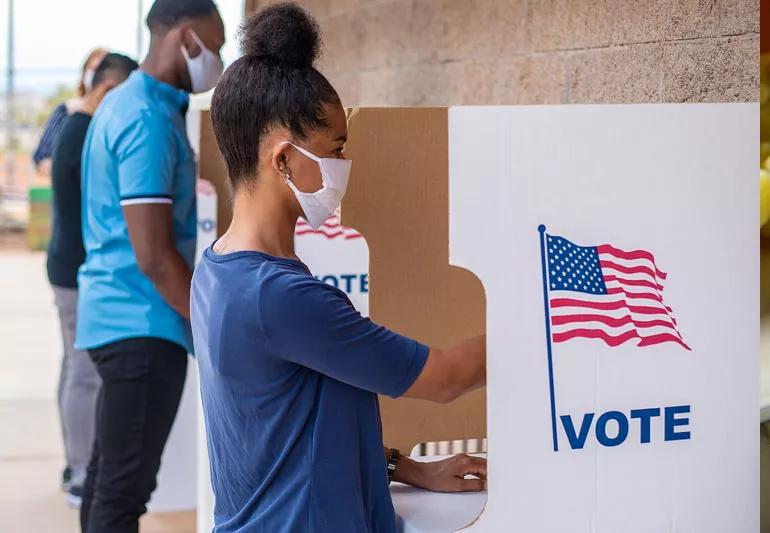Advertisement
Negative ads and social media debates can really weigh on you

Are the upcoming elections stressing you out? You’re not alone. More than half of Americans say they’re stressed over the future of our nation, according to a survey by the American Psychological Association.
Advertisement
Cleveland Clinic is a non-profit academic medical center. Advertising on our site helps support our mission. We do not endorse non-Cleveland Clinic products or services. Policy
While you don’t have to avoid all news and virtual water cooler discussions until the election is over, there are steps you can take to help you manage stress related to the election:
Advertisement
Every political election provokes some anxiety. Negative ads, in which candidates attack their opposition, play a role in heightening tension levels. Why do these kinds of tactics work, even though they stress so many of us out?
Clinical psychologist Scott Bea, PsyD, says we tend to gravitate toward the viewpoints that align with our own thoughts, regardless of how nasty the attacks can get. “The individuals who are the attackers may delight some constituents who share that same feeling,” he says. “And so I think the person with whom we tend to empathize the most, or who is in line with our view the most, is going to appear favorable to us — no matter how they conduct themselves.”
Another way negative ads can impact our psyche has to do with how the person who is being attacked responds.
When under attack, most people’s brains go into defense mode, Dr. Bea says. But being overly defensive can signal to others that we are insecure. On the other hand, when a person uses non-defensive responses, that can go a long way toward making that person look more secure and confident, Dr. Bea says.
“Try not to defend yourself too much,” Dr. Bea says. “Acknowledge your foibles as a human being rather than strongly defending them. This is something that we see quite rarely. It’s a little hard to pull off initially, but if you do it with some practice it gets easier and easier.”
Learn more about our editorial process.
Advertisement

The results aren’t great, and the risks — like vision problems — aren’t worth it

A more open conversation on athletes and their mental health needs is overdue

In response to stress or danger, your brain responds by either defending itself, running away, stopping or reconciling

Combat stress and anxiety — common chronic hives triggers — by focusing on sleep, staying active and leaning on others for support

Fostering romantic and/or sexual feelings for other people outside of your relationship can lead to long-term consequences

Reiki is an energy-healing practice that many people describe as deeply calming and therapeutic — but it shouldn’t be used in place of conventional treatments

Taking care of yourself extends beyond symptom management and includes things like passion projects and meaningful moments

Connecting with loved ones, keeping a gratitude journal and reframing the situation may help the dread dissipate

Focus on your body’s metabolic set point by eating healthy foods, making exercise a part of your routine and reducing stress

PFAS chemicals may make life easier — but they aren’t always so easy on the human body

While there’s little risk in trying this hair care treatment, there isn’t much science to back up the claims